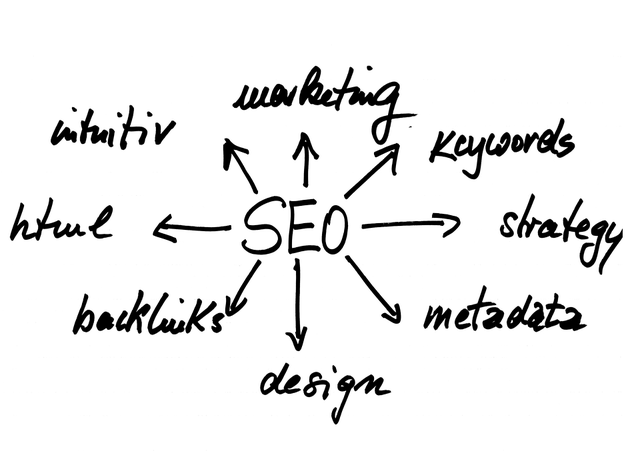Content marketing and search engine optimization (SEO) are two essential strategies in today’s digital marketing world.
But what if we told you that content marketing vs SEO could be “content marketing plus SEO”?
At the end of the day, a great content strategy that truly seeks to add value for your potential customers should naturally also meet many SEO best practices. Content marketing with SEO in mind can help you and your users “win” in search.
In this brain-dump, we’ll explore the art of content marketing, the science of SEO, and how integrating both can lead to powerful results for your brand and business.
The TL;DR (Too Long; Didn’t Read)
- Content marketing versus SEO is better framed as content marketing and SEO (in many cases), with the power to drive website traffic, attract new visitors and leads, engage and educate, and ultimately convert prospects into customers.
- Search engines genuinely try to elevate the best content and the best brands to help their users, which can also be your users. Search engines want to surface helpful content and websites that educate, inform, or “sell” the very thing their user needs.
- Creating valuable content tailored to your target audience (traditional “content marketing”) is central to a dual-SEO-content-marketing strategy. Likewise, proper and commonsense webpage optimization for users (for example, with speed and intuitive navigation) will naturally also appeal to search engines.
Understanding Content Marketing: The Art of Engaging Your Audience

Content marketing is the process of creating and sharing valuable, relevant, and consistent content with the primary goal of attracting and engaging a specific target audience. By blog-writing or producing high-quality content that addresses the needs and interests of your audience, you can build trust, establish brand authority, and ultimately drive conversions (buyers of your products).
In the age of information overload, content marketing stands out by offering value to your target audience instead of bombarding them with promotional messages.
It’s a long-term strategy that focuses on developing relationships with customers and providing real value, making a well-planned content marketing strategy an essential component of any successful digital marketing campaign.
This customer-centric approach helps you capture their attention and keep them engaged with your brand, making content marketing a powerful channel.
Demystifying SEO: The Science Behind Search Engine Visibility

Search engine optimization (SEO) is a way to increase website visibility on search engines. It helps to generate free and relevant organic traffic from Google, Bing, Yahoo, and other smaller search engines.
The primary objective of SEO efforts are to enhance the user experience by optimizing websites for both on-page and off-page factors, making it easier for search engines to understand, index, and rank your content.
The focus of a good SEO strategy lies in:
- on-site content: identifying relevant keywords or topics and writing/optimizing content for those “problems” to achieve higher rankings on search engine results pages (SERPs).
- on-site technicals: technical elements like website speed, navigation, structure & hierarchy, and more
- off-site signals: links to your site from other relevant or authoritative outlets, consistent business details across the web, off-site reviews, and more
Comparing Content Marketing and SEO: Key Differences
Traditionally, SEO is a technical process that centers on enhancing web pages for search engine visibility, while content marketing concentrates on captivating an audience with valuable content.
In reality, websites optimized for great SEO and great content marketing will provide value and a quality experience for users, meeting their shared goal and outcome: increasing conversions (new customers) and engagement for your brand.
When comparing content marketing and SEO, let’s recognize the key differences in philosophy, execution, and impact.
- Content marketing can be an art, focusing on engaging your audience with valuable content that informs, entertains or educates them.
- SEO can be a science, aiming to optimize web pages to enhance visibility in search engine results and attract organic traffic.
Content marketing and SEO can work hand-in-hand to reach the same goal: increased website traffic. Combining content marketing and SEO strategies can yield powerful results, as each supports the other to the advantage of brand power, search engine traffic, and solving users’ problems.
The Power of Combining Content Marketing and SEO

By focusing on creating high-quality content that addresses user needs and optimizing it for search engines, you can achieve impressive results in both customer engagement and search engine rankings.
Let’s explore how content marketing supports SEO by enhancing user experience, and how SEO boosts brand authority to support content marketing.
Enhancing User Experience: How Content Marketing Supports SEO
One of the primary ways content marketing supports SEO is by improving the overall user experience and providing relevant answers to your (and search engines’) questions.
By producing relevant and valuable content that addresses the needs and interests of your target audience, you engage users and encourage them to stay on your website. With good content, your user gets real value just by being on your site, which also positively impacts search rankings.
To enhance user experience through content marketing and SEO, implement effective landing page designs, incorporate visual elements to communicate your message effectively, leverage PR and blogger outreach to distribute content, and repurpose content through videos and graphics.
By optimizing your content with relevant keywords and topics (i.e. a bike shop writing about how to change a tire efficiently), you can also attract the right target audience, boosting your chances of driving relevant traffic and conversions.
Boosting Brand Authority: How SEO Supports Content Marketing
A well-executed SEO strategy is designed to elevate your website in search engine results, making it more visible to potential customers and increasing the likelihood of attracting organic traffic.
The higher your website ranks on search engine results pages (SERPs), the more trust and authority your brand gains in the eyes of users – and the more users you’ll see.
By optimizing your content with relevant keywords and producing high-quality, customer-centric and informative content, you can establish your brand as not only an industry authority (potentially attracting valuable backlinks from other websites), you also genuinely meet users’ needs!
Crafting a Winning Content Marketing and SEO Strategy
Crafting a winning content marketing and SEO strategy involves a combination of topical research (more traditionally known as keyword research in the world of SEO), creating valuable and relevant content, and optimizing your website for search engines.
By setting realistic goals and focusing on providing value to your target audience, you can develop a comprehensive marketing strategy that drives traffic, increases brand visibility, and provides a great user experience.
Topical or Keyword Research: Finding the Right Balance
Keyword research is the foundation of any successful SEO strategy, at least historically.
This involves identifying and analyzing relevant search terms that users might enter into search engines to gain insight into a particular niche and target audience. By strategically incorporating these keywords into your content, you can improve the likelihood of search engines elevating your content, with the ultimate goal of attract the right audience to your website.
Put a better way, keyword research is really topical research, understanding what phrases your users might be searching for and how best to answer their queries. Tools like AHRefs and SEMRush are powerful in assisting in this process, helping you understand the competitive landscape to “rank” for a particular niche.
“UTI pills online” will be a significantly more difficult target than a guide on “how to change a brake light in a 2003 Subaru Impreza.”
Remember, the goal is to add value for people who may need your service or the product you sell.
Good keyword research helps you create optimized content and landing pages that result in increased impressions, clicks, and conversions. By finding the right balance between targeting high-competition and low-competition keywords, you can maximize your potential for organic search visibility and drive more relevant traffic to your website.
Creating Valuable and Relevant Content
Creating valuable and relevant content is at the heart of any successful content marketing and SEO strategy.
The RankBrain algorithm, introduced by Google in 2015, emphasizes content that is beneficial to readers and provides solutions to their problems, and numerous Google updates since have attempted to find truly great content.
By producing customer-centric content that addresses your users’ needs and interests, you can dually improve your search rankings to drive more organic traffic to your website, as well as resonate with your target audience. By creating content that is truly tailored to your target audience, you can increase the likelihood of conversions and optimize your return on investment. Deploying various content formats, such as videos, blogs, and infographics, can also help you reach a broader audience and keep them engaged with your brand.
Optimizing Web Pages for Search Engines
Optimizing for search engines and the robots that power them is a key component of any successful content marketing and SEO strategy, but it might better be thought of us optimizing your web pages for a great user experience.
This process involves the obvious – like ensuring your website loads quickly, is easy to navigate, and has a sensible structure – and the non-obvious – like optimizing page titles and meta descriptions, and incorporating appropriate internal and external links.
Search engines are generally looking for the same things that create a great user experience(!), and the benefits of webpage optimization can include improved search rankings, increased organic traffic, and a better user experience that guides users to “convert” into customers.
By taking the time to optimize your website, you can ensure that your content is easily discoverable by search engines, reaches the right audience, and gives them a warm, fuzzy “found it” feeling, ultimately driving more traffic and conversions.
Real-Life Examples of Successful Content Marketing and SEO Integration
Many businesses have achieved success by combining killer content and SEO strategies. Let’s look at a few.

Search Engine Land (searchengingeland.com) shows up in the top search results for a variety of SEO problems, how-tos, and beginner queries. This outlet has become a go-to for great research and timely coverage of what’s happening in search. And while SEI has done some great stuff to optimize their web pages for search engines – it’s their business, after all – they mostly just provide really good and really helpful content! It shows in how they’ve grown in search results.

Wirecutter (nytimes.com/wirecutter) has become one of the most trafficked websites and well-respected product review providers globally not because of its SEO strategy (though it’s great at that), but because they provide powerful, real-life reviews with an intuitive process and navigation. Being a trusted source led Wire Cutter to tremendous organic traffic, or SEO, success.
The Ending
Content marketing and SEO go hand-in-hand far more frequently than many businesses realize.
Remember, search engines are trying to get their users the best solution to the user’s problem, whether that’s educational (“how to…”), finding a needed service (plumber near me”), or a product (“diaper bag for twins”).
When you create good content and optimized webpages, your goals are aligned.
Don’t overthink SEO versus content marketing: effectively integrating both strategies can unlock the full potential of your online presence, drive new traffic, and ultimately help you find more customers.
Niche Copyworks is all about great copy – for both SEO and content marketing. We’re not just an SEO agency – we write killer copy that’s optimized for users and search engines alike, helping to elevate your brand online and meet the needs of your prospects. Check out our SEO content packages or get in touch to learn more about custom content.
Frequently Asked Questions
What’s the difference between content marketing and SEO?
SEO is a method of optimizing webpages and content to ensure they appear prominently in search engine results. Content marketing, on the other hand, focuses on creating meaningful and engaging content to build relationships with potential customers.
SEO is a subset of content marketing, but not the only element, and in our view, they can go hand-in-hand.
Is content marketing part of SEO?
Yes, content marketing should be a crucial part of SEO. Good content is an important factor, as search engines seek to find “the best” content to answer their users’ queries. It’s helpful in achieving better rankings in search engine results pages and driving more traffic.
What’s the difference between marketing content and SEO content?
Marketing content is information created for a specific purpose such as engaging and informing an audience, while SEO content is generally created with the aim of making it easier for search engines to find and rank your content higher in their results pages.
By optimizing for both, you can win both battles at the same time.
Is content marketing off-page SEO?
Content marketing is not the same as off-page SEO, though it can contribute to off-site SEO success.
Great content can help you build backlinks to your website, drive media attention, and demonstrate E-E-A-T (Expertise, Experience, Authority, Trustworthiness). Done right, a great content strategy involves publishing good content and then finding ways to promote it on other channels to help boost off-page signals. This can include social media, guest-blogging, influencer outreach, and more. It’s important to ensure that the content you create is of high quality and provides value to your target audience.

